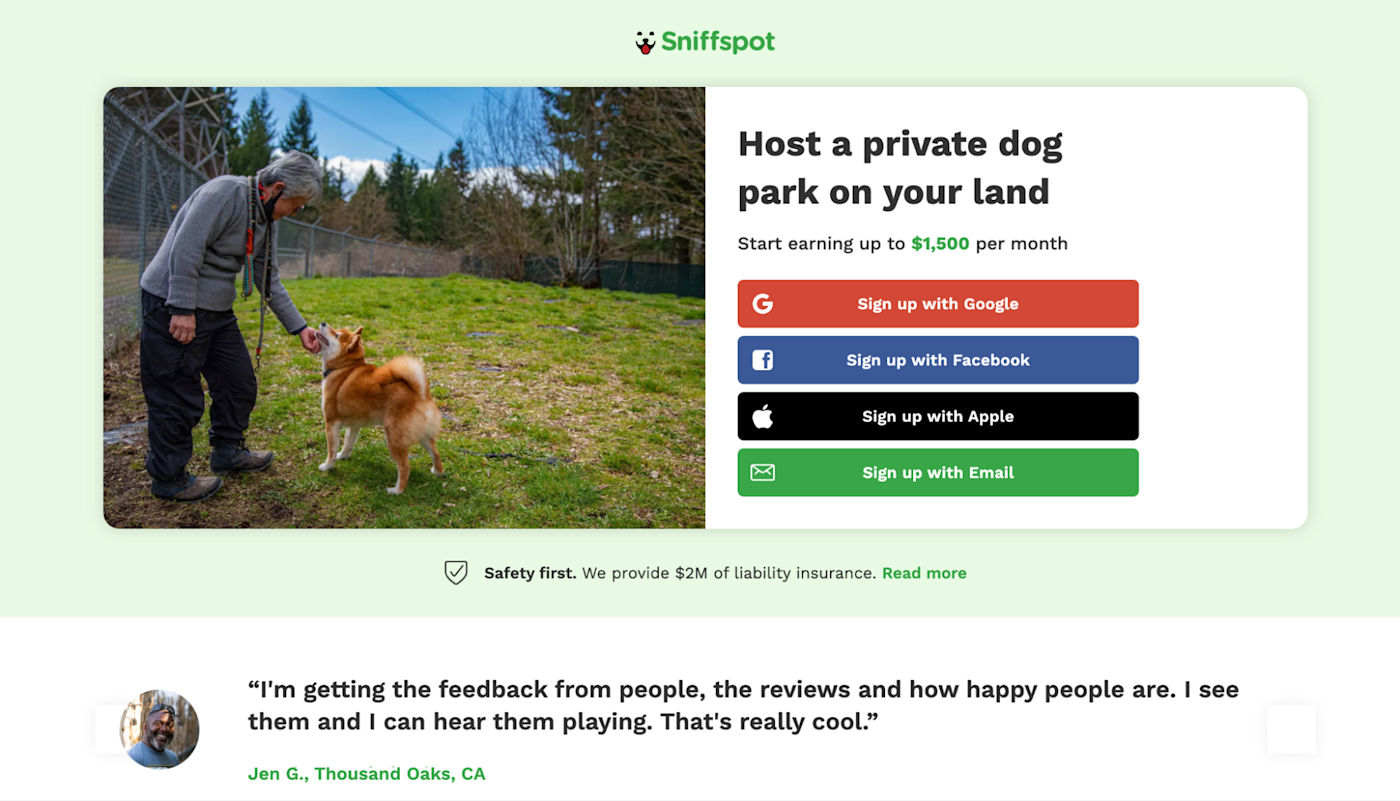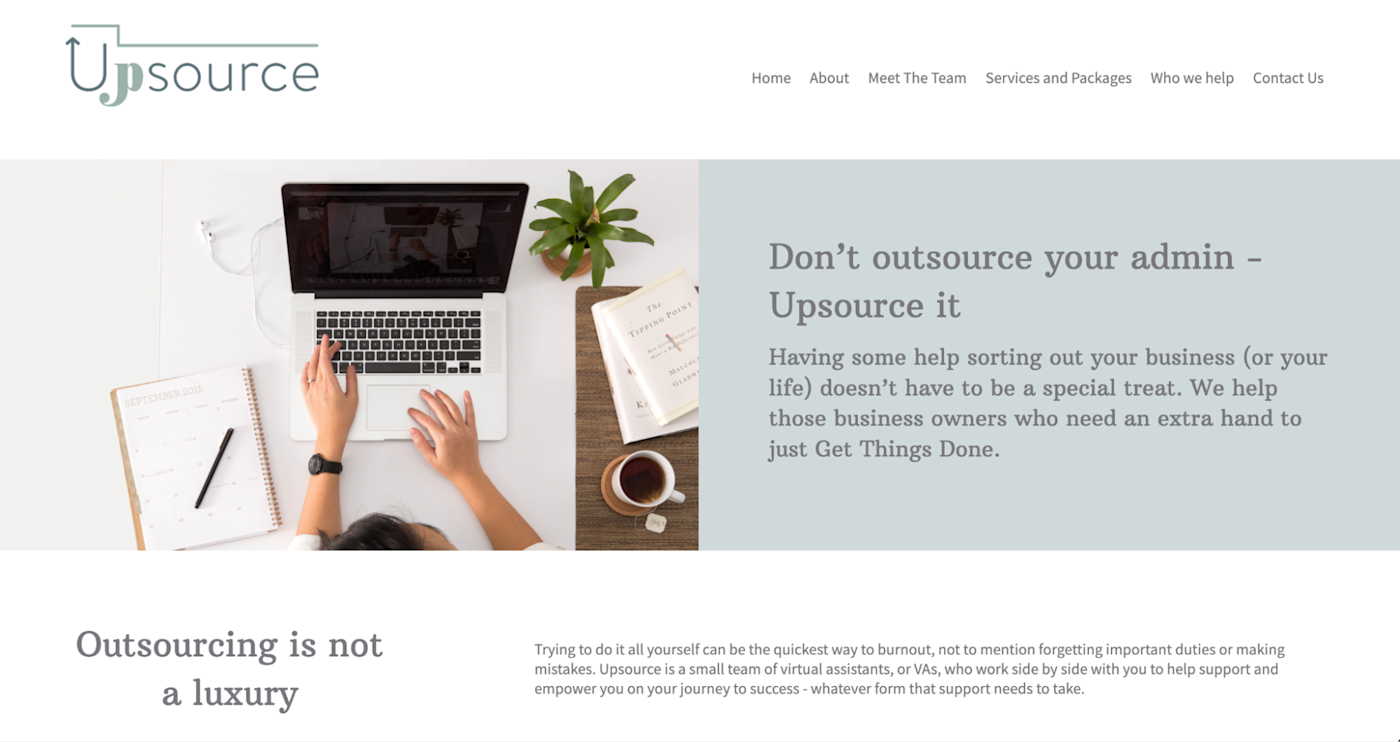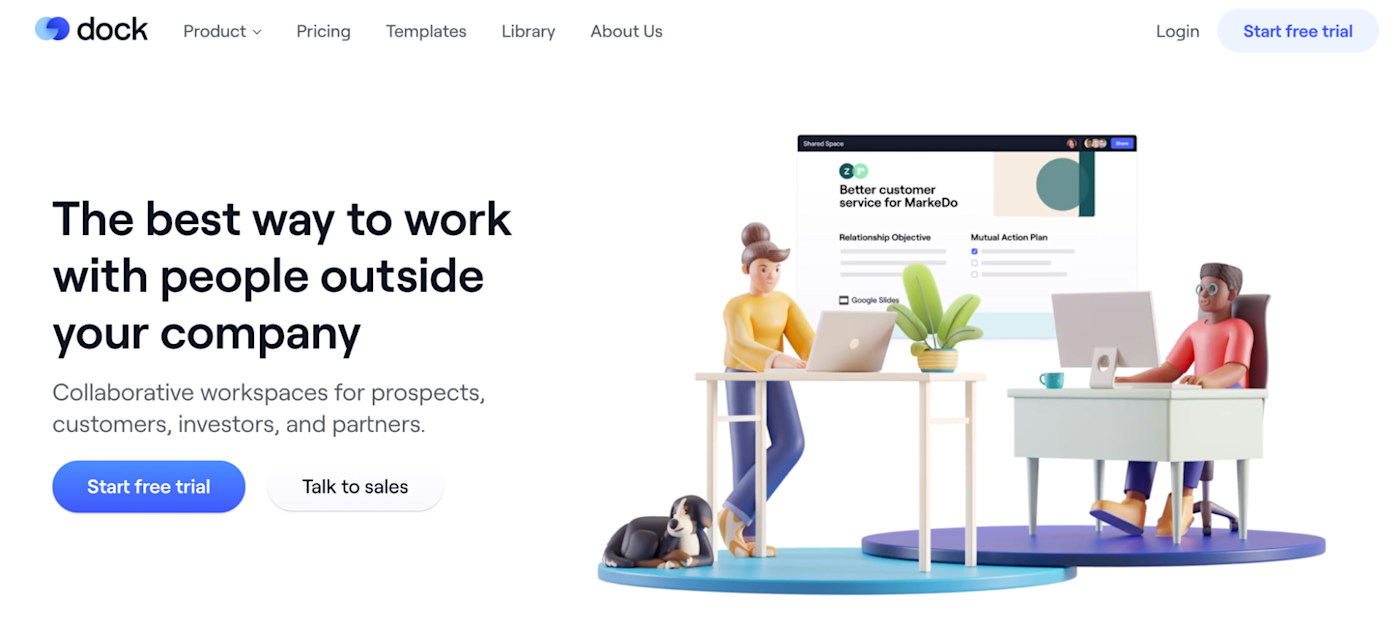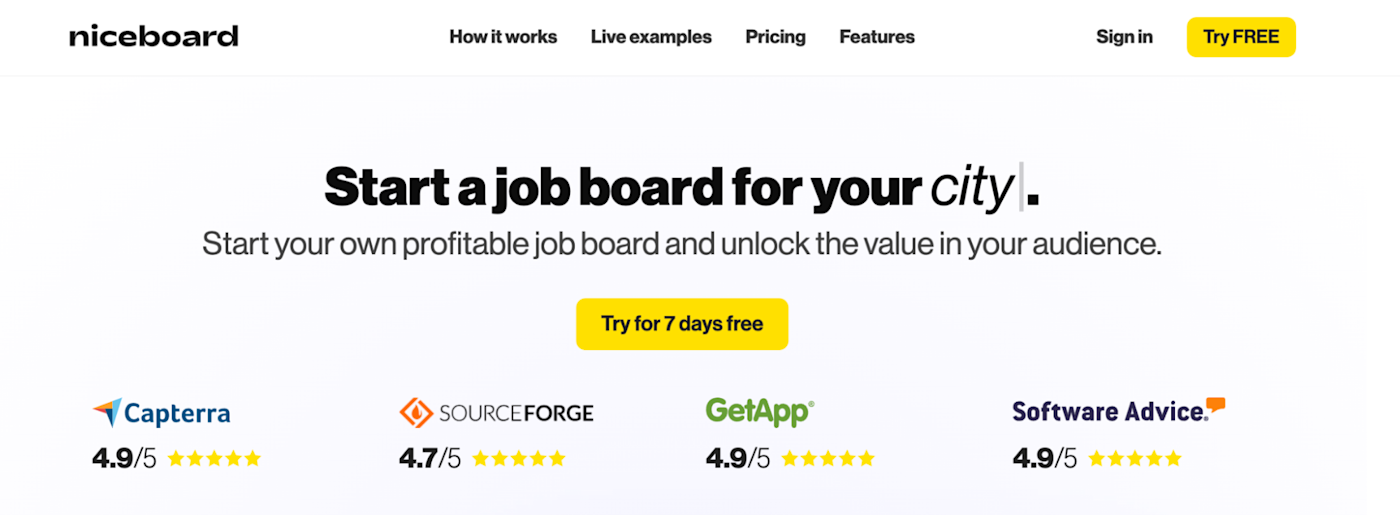Being your own boss has never looked better—so it makes sense that there's been a post-pandemic business boom of people starting side hustles.
If you want to create a business to change your lifestyle and finances, you may not have a ton of cash to invest in the venture. That doesn't mean you don't have options. I asked around and was inundated with all sorts of ideas for low-capital business ideas you can start with minimal upfront investment.
Local business ideas | Online business ideas |
|---|---|
1. Landscaper | |
11. Blogger | |
3. DJ | |
13. Freelancer | |
15. Travel planner | |
17. Translator | |
18. Dropshipping | |
19. Home tutor | |
20. Online community | |
21. Micro-SaaS | |
22. Job board |
How to choose your next business idea
The business ideas here are just the tip of the iceberg of low-capital opportunities. As you review the examples and come up with your own ideas, here are a few tips to be sure you're keeping your head on your shoulders.
Consider your skills. If you build on what you already know, you won't need to invest in extra training to get started—and you can begin faster with credentials.
Use your current equipment. You may not have the best tools to start, but working with what you have until revenue flows makes it more accessible.
Fit your timeline. Some businesses (like a landscaping business) can turn a profit relatively quickly, while others (like a blog) will take time to gain momentum.
Lean on existing tools. Check to see if there are existing marketplaces for what you're building. Think: Etsy for makers, Rover for dog walkers, and Upwork for freelancers. Just be aware that you'll have to pay for the convenience of tapping into an existing customer base.
Think about your income and lifestyle goals. Do you want a full-time gig or supplemental income? Are there particular hours or seasons you do or don't want to work? Building a business takes time and effort, so you want to make sure you choose a path that aligns with your plans.
Make sure you have an audience. A business has to live at the intersection of what it can offer and what customers want. Be sure to validate your business idea to make sure enough people are willing to pay for your products or services to make it worthwhile.
Remember: because you're starting a business with no money—or very little—you'll need to be much more strategic about the rest of the process.
Local low-cost business ideas
Remote work is a hot topic right now, but there are still plenty of business opportunities in your community. Here are some locally-based low-capital businesses you can set up for around $1,000 (or less!).
1. Landscaping business
If the idea of sitting at a desk all day makes your skin crawl, a landscaping business could satisfy your need to get outdoors. Upfront costs can be as low as $500, especially if you start with the equipment you already own. Landscaping work is typically seasonal, so you can use automation to help run your landscaping business during the busy months.
2. Baker or personal chef
Calling all Great British Bake Off fans: have you considered selling your creations? You'll need to check home bakery laws in your state, but if you're already a baker, you likely have some of the equipment you need.
Colin Johnson founded Company Bread from his home in Connecticut. "To get started, all I needed was a $50 license, a $100 food safety course, basic ingredients, and some equipment for larger production quantities. I also invested in a domain name for my website, so the total initial overhead was around $1,000," he shared. "I was able to make up for those costs within a few months."

Colin also shared a few words of advice for folks starting a new business from scratch: "You should be able to deliver the same level of service to your 10,000th customer as you did to your first customer. It involves more forward-thinking than I realized, so think about how to scale your business model early. Even if you're not investing a lot of money, you need to be investing a lot of time."
3. DJ
If you love music or just enjoy hyping up a room of teenagers at a Bar Mitzvah, you might consider starting a DJ business. Depending on what equipment you have and what you need to buy, you can start a DJ business for around $1,000.
4. Pet sitting and dog walking
For some animal lovers, spending every day with furry friends is a dream job. Typically, the startup costs of setting up a pet sitting or dog walking business are limited to licensing and insurance (though some platforms like Rover will cover those costs for you). If you're looking for something a bit more passive, services like Sniffspot let you rent out your yard to local dog owners.

5. Organizing service
Do you live by the Konmari method and binge organizing shows on Netflix? Turns out you can get paid to do that. You can spend as little as a few hundred dollars to set up a professional organizing service and go on to earn an average of $55 an hour.
6. Furniture refurbishing
You know those satisfying power washing and cleaning video compilations? You can live that. Picking up damaged couches for free or cheap on places like Facebook Marketplace, cleaning them up, and reselling them is a great business for anyone with a truck and a couple strong people to help. TikTok creators Cameron & Sadie called the gig "the easiest side hustle." Take a look.
@cameronandsadie Easiest Side Hustle! 😊 #furnitureflip #furnituremakeover #sidehustle #sideincome #flips #couchflipping #couch #flippingcouches ♬ FEEL THE GROOVE - Queens Road, Fabian Graetz
7. Thrift store flipper
If you want to sell goods without large inventory costs, try buying discounted items and selling them to a niche audience. People who don't live near a thrift store or are looking for really specific types of items will love what you offer. Building an audience around a particular theme makes looking for inventory and building a brand easier. For example, the Vtgspice storefront on Depop sells '90s-era shirts and sweaters.

8. Used book reseller
You can buy books from a thrift store, library sales, or estate sales and sell them to an online audience. If you use Fulfilled By Amazon (FBA), you don't even need to hold onto the books and ship them to sellers.
9. Personal concierge
A personal concierge is similar to a personal assistant, except you'll help multiple clients. As long as you have reliable transportation and a computer or smartphone to manage online tasks, there isn't much more you need to get started.
Learn more: Take inspiration from these tips put together by an executive assistant at Zapier.
Online low-cost business ideas
If you want to work without leaving the house, there are plenty of home-based business opportunities with low startup costs.
10. Virtual assistant
Much like a personal concierge handles local tasks, a virtual assistant helps people manage their work and life from the comfort of their own home. The virtual assistant world is flexible, since you can specialize in general admin tasks or niche business areas like social media management.
Caroline Marshall, founder of Upsource, shared that she "set up as a VA in 2020 investing very little money. I now have a multi-award-winning VA agency company that became an Ltd company last month. A VA business is a great one to start with very little costs."

11. Build a blog
Creating and monetizing a blog is one of the most popular ways to earn money online. James Taylor, an SEO consultant, recommends looking at your hobbies if you aren't sure where to start.
"A hobby blog, in particular, is a great way to get started because you're never going to run out of content ideas. You know what people are searching for because it's your hobby, and you've no doubt searched for similar things in the past. You'll also know what products and information people will need to get started."
While there are some startup costs, your main investment to get your blog off the ground will be time. Mushfiq Sarker, founder of The Website Flip, noted that "the skill sets needed to build a website include SEO, content marketing, and some technical knowledge of how to put a website together. The benefit here is that you can get started for $10 to host a website and then use free platforms like WordPress. As for learning the ins and outs of the business, there are hundreds of YouTube channels and blogs covering these topics."
Once you have your blog set up, you have a few ways to earn money. Robert Jones, founder of Property Investments UK, noted that blogs "can be monetized in different ways (many low-cost and no-cost) from partnerships and affiliates, through to display advertising and selling your own products."
12. Coaching and consultation
Have something to teach? Rather than starting a blog, you could begin offering coaching or consulting sessions. Costs can go into the thousands if you let them, but you can also start small with a simple website and marketing. Once you've tested the idea and made some money, you can add to your business.
Paige Arnof-Fenn, founder and CEO of Mavens & Moguls, said "setting up any type of consulting or coaching business on the cheap (under $1,000) is possible because all you need is a website, logo, name, email, business cards, online stationery for proposals and invoices, cell phone, and a good idea to get going." Paige recommends skipping printed materials like brochures and letterheads to save money.
13. Freelancing
When you don't have the cash to invest in a business, you can lean on your time and skills. Alex Birkett, co-founder of Omniscient Digital, shared that "service businesses tend to be the easiest to bootstrap since you're selling your own time." Alex and his co-founder David Khim began their agency in their free time outside of their jobs. They kept initial costs low by doing the work themselves and putting off hiring help until they had client cash flow.
The most in-demand freelance skills include web design, social media marketing, and online chat support. But the opportunities to serve clients are endless. Laura Roeder, founder of Paperbell coaching software, offered a tip for freelancers:
"Many new entrepreneurs think they need advertising, a fancy brand, or an expensive site to get going, but a freelance business just needs one thing: clients! You can start by pitching opportunities on sites like Upwork or Fiverr, which costs nothing. Or look for people who need what you have on Facebook Groups, Reddit, or Twitter."
Liz Heflin, founder of MACE Writing, also praised freelancing as a business with low barriers to entry. She shared:
"When I started freelance writing, it was 2006. I had my $200 laptop and an Internet bill that cost me $50 a month. That's it. That was the entirety of my overhead. I worked 100 percent remotely from my apartment, and I found all my initial jobs on the writing gigs section of Craigslist (of all places). Flash forward sixteen years, and I'm now a content marketing consultant and the founder of MACE Writing. My laptop has upgraded over the years, and I pay for things like a website and hosting. However, my overhead is still incredibly low."
14. Stock photographer
If you already spend time photographing the world around you, why not sell some of those images? You can sell stock photos to earn cash on the side. You can start cheaply and quickly if you already have a camera—even the one on your phone.
Will Yang, Head of Growth at Instrumentl, also suggests aerial photography:
"The overhead costs associated with this type of business are relatively low. You won't need to lease office space or purchase expensive equipment. All you need is a drone and a camera to start offering your services to various clients, from real estate agents to wedding planners. The demand for this kind of service is often high, so you can charge premium rates and remain competitive."
15. Travel planner
Some people just want to be told what time to get to the airport, while others love researching every last travel detail. If you're the latter, think about selling travel planning as a service.
16. Affiliate marketing site
Affiliate marketers promote a product and earn a commission on its sale. If you create a website centered on a personal interest, you can use affiliate marketing to monetize the content.
Freelance writer Elise Dopson did this with a website focused on her dog's breed. It took her about six months of work to get nearly 7,000 monthly visitors to the site and earn £120/month with Google AdSense and Amazon affiliate earnings. She said the most challenging part about getting started is finding the time. "The work itself (including setup) is pretty easy. It's just finding spare time to get the stuff written," she said.
Super happy with how my affiliate site is coming along. Started last August and now have 6.7k+ monthly visitors from organic search with <25 posts published on the site 💪 pic.twitter.com/gm9nxt7ybp
— Elise Dopson (@elisedopson) August 17, 2020
17. Translation
Hey, multilingual folks: you have a valuable skill set. Startup costs as an online translator are nearly zero, especially if you start looking for work on a job site that quickly connects you with clients.
18. Dropshipping
Dropshipping lets you sell online without keeping piles of inventory in your living room. Since you only pay suppliers after making a sale, your startup costs are mostly limited to supporting software.
19. Home tutoring
Digital resources make it easier than ever for you to help students worldwide and earn extra cash. Jamie Irwin, founder of Straight Up Search, recommends that tutors "take advantage of today's technology by utilizing online teaching platforms like TutorCruncher, Skype, and Zoom."
20. Online community
Online communities give you a place to connect with an audience, share resources, and turn a profit. They're also cheap to start. Jimmy Daly, co-founder of Superpath, used a small investment from a personal advisor to build the business in its first year. While it was the perfect setup for him at the time, you don't have to find capital to get started.
"The upfront costs for Superpath were minimal. A Ghost website, Slack, ConvertKit, Zapier, Stripe, Airtable, Notion, and a few other tools. I ran the business for $500 a month for nearly a year. It was so, so lean. If someone is willing/able to do it without a salary for a while, a community-based business is a great option because it's nearly free to start," Jimmy shared.

The hard work paid off since the Superpath Slack has more than 7,000 members (and is one of my favorite Slack groups for marketers), plus a paid Superpath Pro membership.
21. Micro-SaaS
If you have an idea to help an audience, but don't want to work hands-on as a freelancer or consultant, you might try building an app.
Alex Kracov, CEO and co-founder of Dock, shared that he started his tool as a Webflow product. "We built the initial version in Webflow (for just the cost of a subscription) and were able to prove the idea. As the business matured, we invested more money into the company. Still, we started the initial business for under $50 per month. TLDR - I think software businesses can start with low investment upfront, especially if you take advantage of no-code tools like Webflow, Glide, Zapier, Bubble, etc."

22. Job board
The great resignation presents a unique business opportunity: job boards. Tomas Laurinavicius, co-founder of Best Writing, built a job board for writers.

"When the pandemic broke out in early 2020, my friend Ed and I built a job board for writers using no-code tools like Webflow, MailerLite, Airtable, and Zapier to glue everything together. The building part was pretty quick and cheap (under $100 for software and four weekends to develop the early prototype). We bet on SEO and started by growing our organic traffic and curating writing jobs from other public job boards. We created a free weekly newsletter and began charging companies to reach our audience."
Olivier Breton, founder of Niceboard, also applauded job boards as an easy-to-enter business: "Job boards make for great side hustles (most of our customers are profitable within just two months) and can easily evolve into full-time businesses (we have customers doing six figures in profit through their job boards) with very little upfront capital."

Automate the busywork of your business
Deciding to start a business, even a low-cost one, is a big decision. You have to be ready to contribute time and patience while building your reputation and revenue. But there are a few things you can do to safeguard your time and money.
Jenn Prochaska, founder of The Write Difference, offered guidance for refining your business idea before getting started: "Decide what one overarching principle guides everything you'll do (e.g., empowerment, community, security), what problem you solve, and for whom you solve it," she shared.
Nail down your business plan early to help guide your decision-making later on.
Invest in insurance. Allison Grinberg-Funes, a UX Content Strategist at Liberty Mutual, suggests entrepreneurs "research the laws in their state to see if they'll need a license or certification. And budget for and buy business insurance." The details matter.
Automate the busywork. If you're running your own business on a budget, let the robots take care of the grunt work for you. Here's how to know when to automate.
Have a little more than $1,000? Here are businesses you can start with $10,000 or less.
Read more: 7 free small business budget templates for future-proofing your finances





